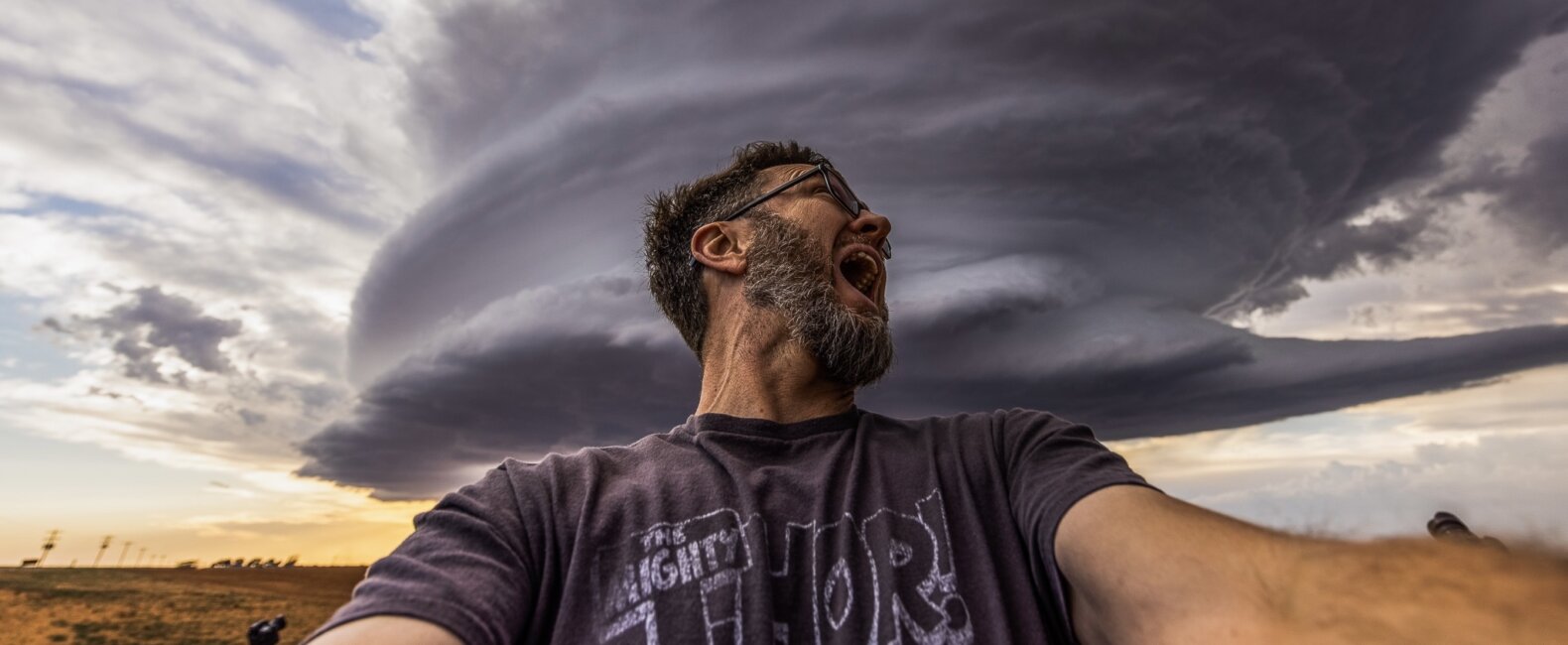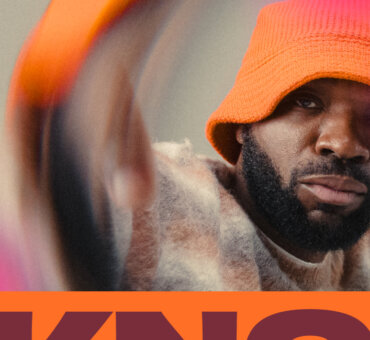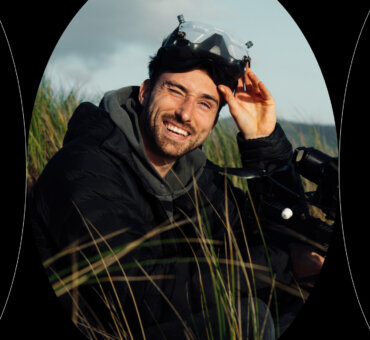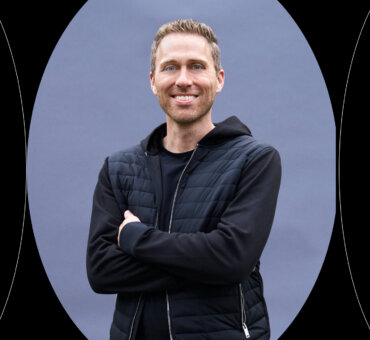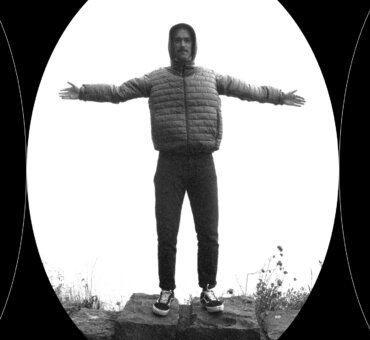When he’s not photographing weddings or chasing storms, Emmy-winning filmmaker Mike Olbinski is creating stunning work for various TV shows, movies, and commercials. Hear from the Phoenix-based creative on what’s keeping him inspired, his advice for new filmmakers, and why he uses Musicbed to find the right music for his work.
Musicbed: What sparked your passion for filmmaking/storytelling?
Mike Olbinski: I’ve always had a passion for storms and weather, even from a young age. Later in life, I discovered that not only did I love that stuff, but I wanted to share it with others somehow. That vessel ended up being in the form of photography and eventually, time-lapse. Once I discovered how much I loved time-lapse, I knew I wanted to make films that used incredible music. I’ve always been a massive fan of soundtracks from a young age. Star Wars, Star Trek, Interstellar, The Arrival, Dark Knight, and so many many more. Being able to find songs that felt like those soundtracks allowed me to pair them with my storm films and build emotion and story.
What keeps you motivated and creatively inspired?
It’s tough when you’ve been doing this kind of thing for awhile, because you tend to become picky and a perfectionist, so your standards are higher. With the weather, I’ve seen so much but the beauty of it is that it never gets old to me. Chasing storms, seeing supercells, tornadoes, epic lightning bolts…I never get tired of seeing that kind of thing, it’s inspiring, mesmerizing, and a part of me. On the flip side, I can always count on music to inspire me as well. I can feel bored or in a rut, then I hear a brand new track and suddenly I’m pairing it up with storm footage in my head and can’t wait to get to the editing table!
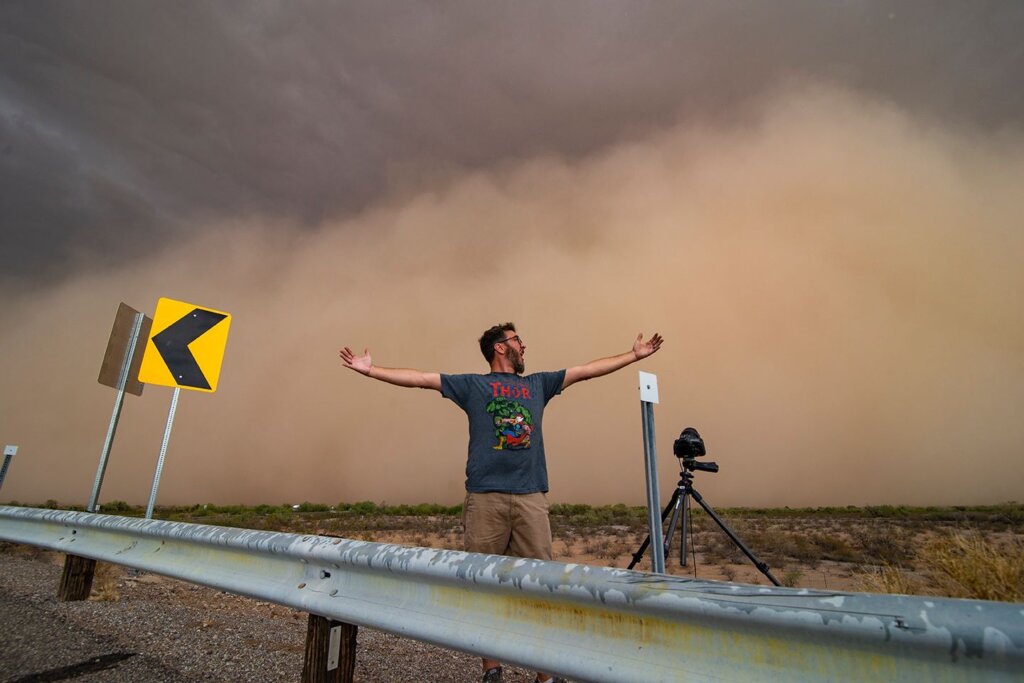
What makes a story visually appealing? What role does music play in storytelling?
Music has always been linked to emotion for me. All the biggest and most impactful films have amazing soundtracks. Interstellar is one that I always come back to because the music alone might make you cry not even having seen the movie itself. But linking that music to onscreen visuals just connects the viewer in a way that you can’t really achieve otherwise. I love that. One of my favorite parts of putting a film together is laying down clips to the music. Listening to it, watching it, seeing how it makes me feel if it works like I want it to work. I lose count of how many times I watch one of my films during the editing process. The music repeats in my head all day, even when I’m sleeping.
What elements do you think are essential for crafting a compelling story?
Because my medium is using storm time-lapses, I do feel somewhat limited in the story department. But for me, my main goal is to pair the music with the correct clips that seem to “match” up very well. And as movies tend to do, I save the biggest, best clips for the end, to go along with the most dramatic or best parts of the song. I think this build to an apex helps tell a story despite being limited in the material I use. Some parts of a song will have a certain feel. Like, I can hear part of a track that sounds like something “rotating” and I’ll put a clip along with it that has a supercell spinning like a top and it’s magical.
How important is music in your work?
It means everything. Without music, my time-lapse films would feel empty. Even when I’m standing there in real life, with just the wind, it feels like there is some kind of soundtrack playing. I listen to soundtracks generally while I’m on the chase, heart-pounding tracks, haunting tracks, and inspiring songs. I didn’t realize how much growing up in a world of soundtracks would be important to me later in life in a way I would have never suspected. Those famous tunes from big-time movies bring back big moments of nostalgia. Music is everything.
What advice would you give other filmmakers/creators who are just starting their careers?
I’m not great in the advice department when it comes to filmmaking, but for me, it was all about passion. Storms are a passion, an addiction almost, and because of that, I was able to pour my heart and soul into it. It takes time, energy, patience, and the ability to know what you still have to learn. Never stop learning, never stop trying to improve. Find artists you look up to and hope to someday be as good as, and work your way to that point. But most importantly, find something you’d roll out of bed for at 2 AM because you just can’t help it. Find something you love that much and tell its story.
How do you find the balance between pushing boundaries creatively and delivering what your client wants or audience wants to see?
With my films, I tend to stick to what I want, what I like, and how I’d want to see it, and let the rest happen. It’s served me well over the last decade. I’ve never heard of a filmmaker, director, or writer who let others tell them how to do it and end up with a quality vision. Guidance is good, but you have to be yourself and put everything you are INTO that work. It can be difficult in this day and age of social media when a project doesn’t do as well as a past one, but it really shouldn’t be about that. It should be about what you love. What you want to convey. And just hope the viewer sees it.
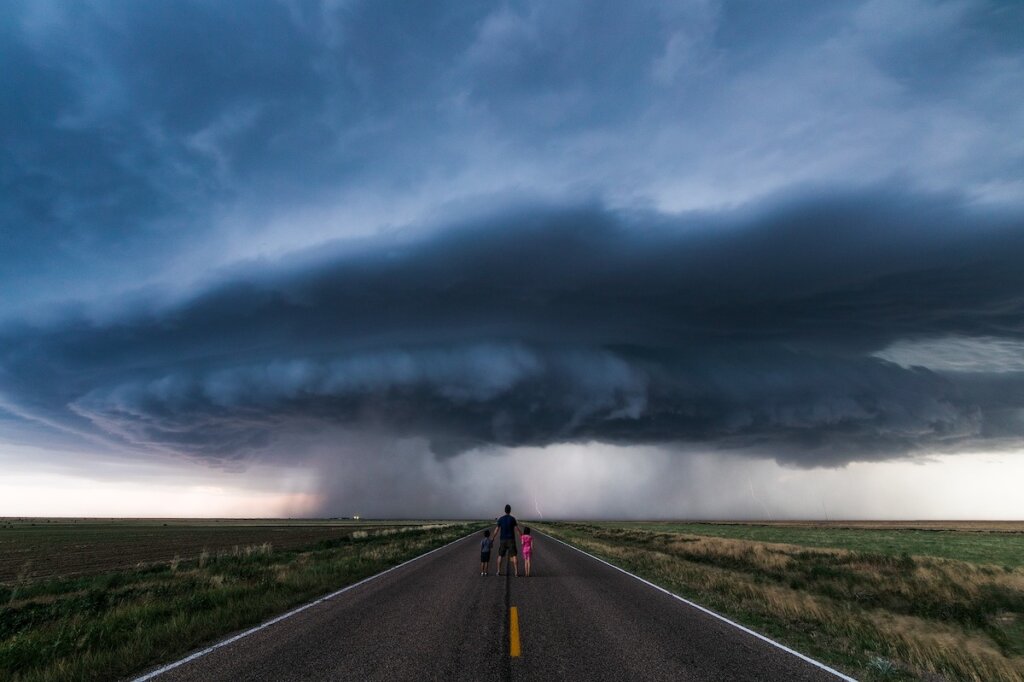
What is the most challenging aspect of being a filmmaker/creative?
There are so many challenges, but chief among them is not losing your passion because perhaps a film doesn’t do well, or you aren’t getting the response you want. It’s an emotional roller coaster chasing your passion like this and it can make it incredibly difficult at times. That also includes feelings of burn-out, frustration, and depression. Passion isn’t just a word you use to say you enjoy something. Passion means your heart BLEEDS for it. Which then leads to moments where you fail and it feels like the sky is falling. But I love it too much to ever give up on it.
What are some of your favorite projects you’ve worked on?
Some of my favorites have actually been some black-and-white storm films I’ve made, mainly because they are different, and also the music I selected had vocals. The Musicbed has so much incredible music to choose from and every now and then I’ll stumble upon something that blows my mind. For Shadows in the Sky, I used the song “The Last Goodbye” by Eric Kinny and Danica Dora. It’s so wild and different. It even starts off with someone whistling which seems the opposite of what you’d want for a mean storm film. But it ramps up and gets crazy at the end, after starting off super slow, which made it perfect for beginning my film in black and white, and then doing a slow transition to color as the music beat increased. It’s still one of my favorites.
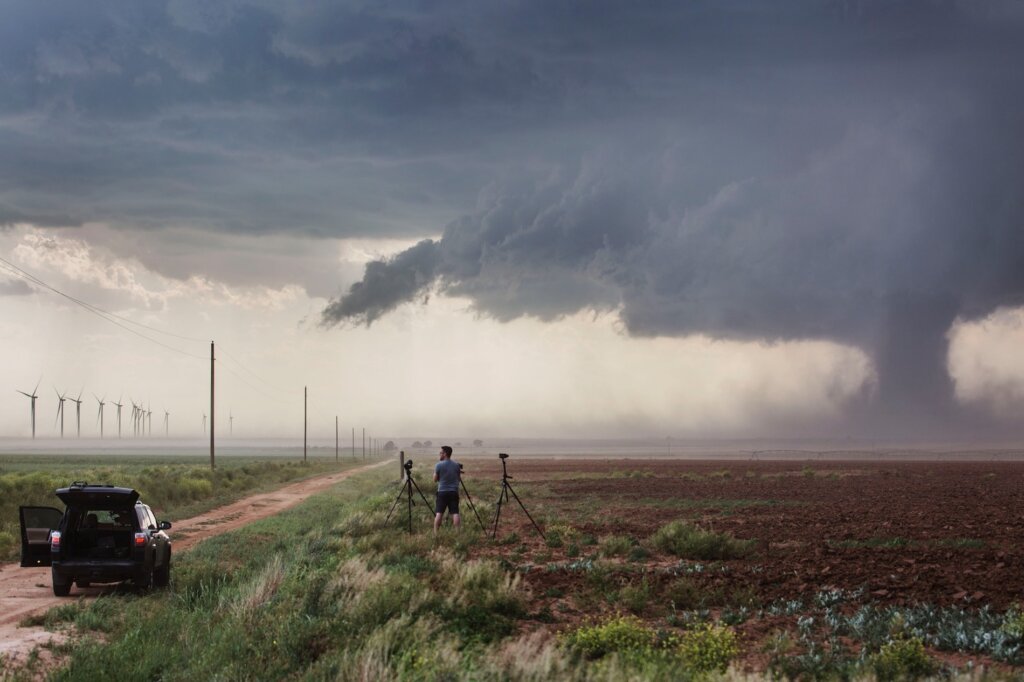
How do you search for music on Musicbed? What are some tips that you’d give other filmmakers to search on Musicbed?
I tend to search for songs based on length at times or by artists I already love, like Ryan Taubert, Luke Atencio, etc. If I know I have a long film, I will look for longer songs that might work. Or in some cases, I’ve explored entire albums that have a similar vibe through all the tracks on it and blended different songs to make one long track. My advice would be to just start with choosing a mood, length, or style you want (cinematic, folk, pop, etc) and see what pops up!
Why do you utilize Musicbed in your work?
The level of quality on Musicbed is unmatched. I know what I find there will be gold every time. The website is easy to navigate, easy to search, easy to save your favorites to various projects, and more. It’s the only place I go to look for music and I’m proud to have been using Musicbed for a decade now. The artists on there are like no other stock music site I’ve found. I’ve even heard some of the music I’ve used in a TV commercial or movie! I’m so blessed to not only have used their music for a decade now but to also be welcomed on as an ambassador. There is no doubt that the music I’ve discovered and used from Musicbed has helped change my life.
—
Explore an exclusive playlist of Mike’s favorite music to use in his work—curated by Mike himself. All available to license only on Musicbed.















































































